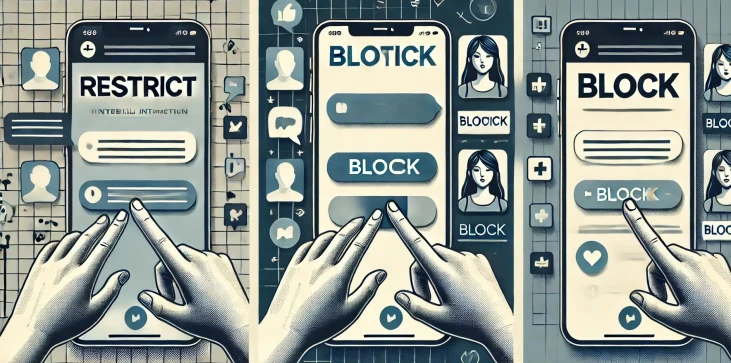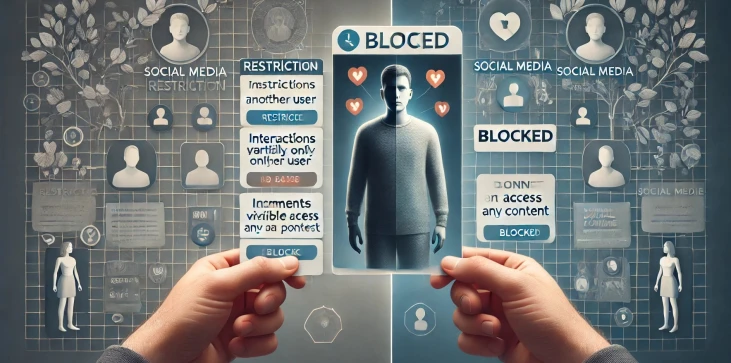
Social media platforms have provided users with various tools to control interactions and manage their online presence. Among the most commonly used features are "restrict" and "block." While both are designed to limit unwanted interactions, they serve different purposes and have distinct effects on how you and others experience your online space. Understanding the nuanced differences between these two features is essential for ensuring both privacy and effective communication management. This article delves into the key distinctions between restricting and blocking, exploring when and why you might choose one option over the other.
Blocking, on the other hand, is a much more definitive action. When you block someone, they lose all access to your profile, posts, and interactions. They cannot message you, tag you, or see any updates from your account. Blocking is typically used in situations where you want to cut off all forms of interaction, such as dealing with harassment, persistent unwanted attention, or severing ties completely. Unlike restricting, blocking is an unmistakable action, and the person blocked will immediately know that they have been cut off from your profile.
The "restrict" feature is best suited for situations where you want to avoid outright confrontation but still control the extent of someone’s interactions with you. For instance, if a friend or acquaintance is being intrusive or overly persistent, but you do not want to escalate the situation by blocking them, restricting them offers a quiet solution. It's a middle ground that allows you to protect your space without creating tension or awkwardness, especially in scenarios where you expect to interact with the person offline or through other platforms.
Blocking is more appropriate when you need a clean break from someone or when you’re facing more serious issues, such as harassment or stalking. In such cases, completely cutting off communication is essential for ensuring your safety and well-being. Blocking also works well when the relationship has reached a point where there is no need for further interaction. This can include ex-partners, former friends, or strangers who overstep boundaries online.
Both restricting and blocking are valuable tools in managing your social media interactions, but they serve different purposes. Restricting offers a less aggressive way to manage unwanted behavior without confrontation, while blocking is a firm method to stop all interactions. Knowing when and how to use each can greatly enhance your privacy, safety, and overall online experience. Understanding the specific benefits of "restrict" vs "block" helps you take control of your social media environment effectively.

Yes, they can still send direct messages, but you won't receive notifications for these messages, and you can choose whether or not to read them. They won't know if you've seen their messages unless you decide to respond.
No, restricting someone does not hide your profile or public posts. They can still view your public content and leave comments, but those comments will only be visible to them.
No, once someone is blocked, they will not be able to find your profile, message you, or interact with you in any way. Your profile will become completely invisible to them.